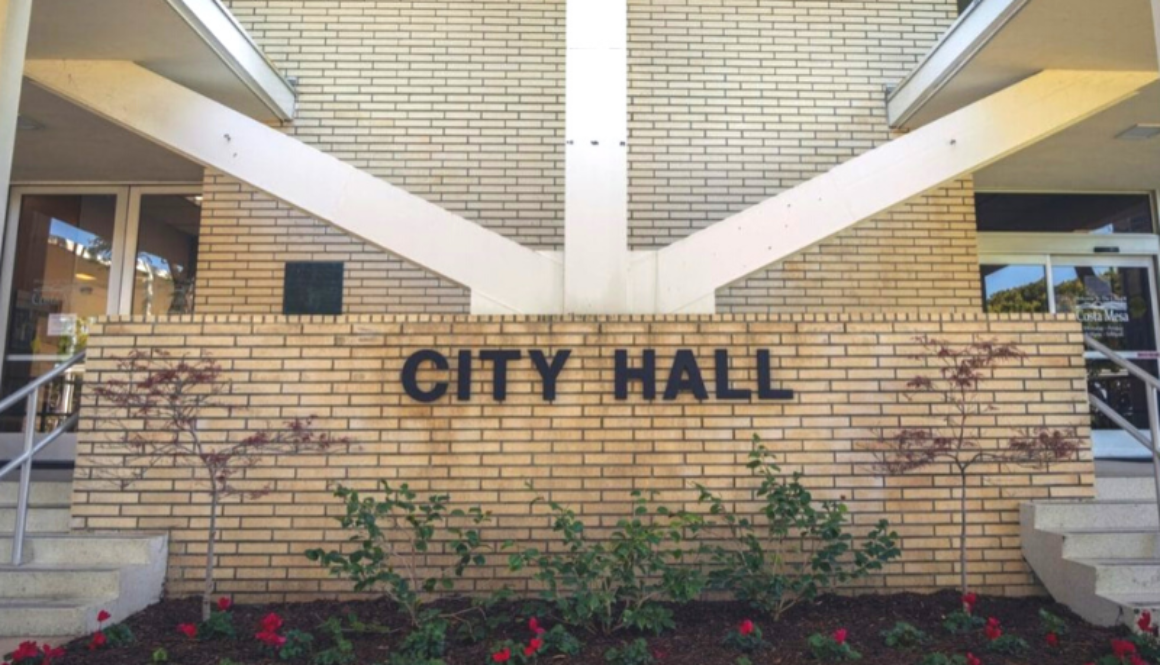Costa Mesa to allow retail sales as OC voters show softening stance on cannabis
By Alicia Robinson
Starting sometime in 2021, Santa Ana will no longer be the only city in Orange County to permit storefront sales of cannabis, and more widespread approval of related businesses could be on the way.
Costa Mesa – which has permitted cannabis manufacturing, distribution, research and testing since 2017 – will create a regulatory scheme and begin taking applications to open retail stores early next year, after city voters agreed Nov. 3 to allow them.
Also in the general election, La Habra residents voted to permit and tax as many as four marijuana delivery businesses, and a slim majority of voters in Laguna Woods said yes to an advisory question of whether the city should allow cannabis shops.
“I think as a whole, society is moving that way,” said Kandice Hawes-Lopez, who heads the Orange County chapter of marijuana rights group NORML. She noted that on Nov. 3, several more states joined California, Colorado and others in approving recreational cannabis use; a majority of states allow medical use of the drug.
As Orange County cities struggle with revenue losses due to the pandemic, Hawes-Lopez expects to see more of them reconsider strict prohibitions on marijuana businesses. UC Irvine law professor Bob Solomon goes even further: he predicts it will be de-scheduled at the federal level in 2021, and “that will allow it to be treated increasingly by the Food and Drug Administration as a prescription drug.”
Costa Mesa Councilman John Stephens, who worked with Mayor Katrina Foley to bring the retail sales measure to voters, said the 65% majority support it received is “clearly a mandate that the community wants to go forward with this.”
Next, a council committee and city staffers will draft some rules laying out how entrepreneurs can apply for licenses and get permits from the city, and the council may take up the proposed rules in January or February, Stephens said.
Then the city will take applications, and business owners may need to seek Planning Commission approval. If the process goes smoothly, Stephens said he expects the first cannabis shops to be able to open their doors by early next summer.
While there wasn’t organized opposition to Costa Mesa’s measure, Stephens noted that it included a number of safeguards that he hopes would put any concerns to rest. Businesses are required to have security guards and cameras, they’ll be restricted to commercially zoned properties, and they can’t be within 1,000 feet of schools, playgrounds and homeless shelters.
Stephens said Santa Ana, which has allowed cannabis stores since 2018, hasn’t had any major public safety issues – and the neighboring city has been raking in the revenue. Santa Ana officials expected to collect more than $10 million this year from marijuana businesses, and Costa Mesa is hoping for what it considers a conservative projection of about $3 million a year.
NORML’s Hawes-Lopez said her group expects to start focusing on other cities that may be receptive to cannabis businesses, based on how their voters felt about Prop. 64, the statewide measure that legalized adult use of the drug in 2016.
“I think we will start to see cities dipping their toe in, trying one or two uses,” she said. “I think a lot of cities are really afraid of retail, but that’s the one that brings the most revenue in.”
Solomon, who co-directs UCI’s Center for the Study of Cannabis, attributes changing national attitudes toward cannabis to several factors. Medical uses of the drug are now widely accepted, thinkers from both ends of the political spectrum seem to agree the decades-long war on drugs has failed, and more people are realizing they know someone who has benefited from using cannabis, he said, such as cancer patients who take it for nausea.
“Largely, we are starting to educate the general population about what is going on,” Solomon said.
For Costa Mesa’s Stephens, a more practical consideration is that existing bans haven’t stopped cannabis sales on the black market, and that means the city ends up using resources for enforcement.
“The most important aspect is that we have a demand for the product right now and we have a supply,” Stephens said. “It’s just a supply that’s completely unregulated and generates no revenues, and in fact it’s a cost.”
Read the full article via: The OC Register
